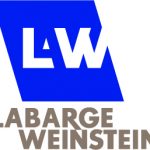Recent De Facto Control Decisions
Canadian tax laws favour Canadian controlled private corporations (CCPCs) by granting them exclusive access to refundable scientific research and experimental development (“SR&ED”) tax credits and lower tax rates on business income. In order for a corporation to be a CCPC, it must not be controlled in fact or in law by one or more non-resident or public entities (see our blog post for more information). A recent decision of the Tax Court of Canada, Aeronautic Development Corporation v. The Queen (2017 TCC 39), provides some insight into the court’s current thinking on de facto control. It should be noted that the decision predates the 2017 Budget and proposed changes to the tax provisions on de facto control.
The corporate taxpayer had been reassessed to deny refundable SR&ED tax credits on the basis that it was not a CCPC. A US resident who owned all of the intellectual property rights to a small amphibious aircraft incorporated the taxpayer (“CanCo”). He was one of four shareholders of CanCo, holding his shares through a company he controlled (“USCo”). CanCo entered into a contract with USCo to undertake certain SR&ED activities in Canada.
A majority of the voting shares in CanCo were held by Canadian residents. Upon review of the facts, the Judge ruled that although CanCo was legally controlled by Canadian residents, CanCo was factually controlled by the non-resident. Some of the factors considered, include:
- The contract in place between CanCo and USCo for the SR&ED work was not based on commercially reasonable terms and clearly favoured USCo;
- The markup stipulated in the contract was never paid to CanCo, nor did CanCo take steps to collect payment from USCo;
- All material, equipment and tools used by CanCo to perform the SR&ED work belonged to USCo;
- USCo was the sole client of CanCo and CanCo depended on USCo for funding;
- When USCo interrupted funding of CanCo’s activities, CanCo was forced to cease operations, making no effort to source work from third parties;
- CanCo did not own the intellectual property rights resulting from the SR&ED work it performed;
- CanCo offered no potential for earnings growth necessary to attract third party direct investment;
- CanCo had few fixed assets;
- The hangar in which it performed its work was owned by USCo and no rent was ever paid; and
- All of the Canadian resident shareholders of CanCo were also employees of CanCo, making it difficult to conceive that such shareholders would vote their shares independently of the non-resident responsible for all funding of CanCo.
The Judge ruled that CanCo and USCo operated as one integrated, wholly-owned organization. Although the majority of the shares were held by Canadian residents, it was determined that CanCo was factually controlled by a non-resident and therefore did not qualify for the enhanced SR&ED rate.
The decision highlights the role played by intercompany agreements and behaviour in an analysis of de facto control. Changes are coming to the law on control in fact, suggesting that this is an area of concern in tax policy. We can expect scrutiny of Canadian companies with key non-resident or public stakeholders. If you have questions about your situation, please contact us and we will be happy to assist.



